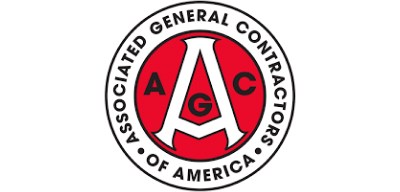Commercial renovation projects are rarely as simple as they seem. Whether you’re modernizing an office or restoring a historical building, there are countless moving parts to coordinate. Businesses need to meet timelines, control budgets, and comply with safety regulations. That’s why hiring a construction manager is essential.
Discover why these leaders are essential for construction management.
Understanding the Role of a Construction Project Manager
Commercial renovation projects require careful coordination and strategic problem-solving to meet tight deadlines. The role of a construction project manager is to bridge the gap between planning and execution so the upgrade runs as expected.
Construction managers are problem solvers, strategists, and leaders who bring order to a process. Here are their main responsibilities:
- Overseeing project execution and coordination: Project managers create detailed schedules, track progress, and make adjustments when needed. They minimize disruptions and ensure timelines are met without compromising quality. They also liaise with stakeholders to keep communication clear and expectations realistic.
- Managing teams and subcontractors: Project managers carefully select subcontractors based on experience, reliability, and owner budgets to make sure the right professionals are in place for each phase of the project.
- Ensuring compliance with building codes and safety regulations: A project manager stays on top of permits, inspections, and legal requirements so every stage of the project adheres to the necessary standards. They also implement safety protocols, conduct regular site inspections, and check that workers follow best practices.
The Purpose of Construction Management
Commercial renovations involve working within existing structures, integrating modern updates, and addressing logistical constraints. The benefits of construction management include:
- Streamlining complex renovation projects: Managers assess challenges like outdated wiring and structural reinforcements to develop an approach to address them. This strategic breakdown ensures that no detail is overlooked and that the solutions are implemented in the right sequence.
- Ensuring efficient resource allocation: A construction manager controls costs by planning how labor, materials, and equipment are used. They negotiate with suppliers for the best price, prevent over-ordering or shortages, and adjust allocations based on project needs.
- Delivering projects on time and within budget: Proper construction management brings a project to completion without overshooting the timeline or budget. This process requires constant monitoring, strategic decision-making, and the provision of contingency plans. If unexpected issues arise, the project manager adjusts accordingly.
You should hire a construction manager when you:
- Need to control costs and quality.
- Are working on complex renovations.
- Have tight project timelines.
- Are working on large-scale projects.
Project Planning for Successful Renovations
Planning allows construction managers to anticipate obstacles, manage hindrances, and create a structured approach that keeps the project moving.
Importance of Comprehensive Project Planning
Every detail needs to be factored in before the first hammer swings. Here’s how a construction manager takes the lead to deliver a project that aligns with the owner’s expectations:
- Setting realistic timelines and goals: One of the first steps in project planning is establishing a realistic timeline that takes into account all aspects of the renovation. This includes getting permits, scheduling subcontractors, ordering materials, and accounting for potential setbacks. They work with stakeholders to define project phases for better workflows.
- Budgeting and resource planning: Unexpected costs can arise because of hidden structural issues, fluctuating material prices, or extended labor hours. A construction manager develops a detailed budget plan that accounts for all foreseeable expenses while creating a buffer for unforeseen circumstances.
- Anticipating potential challenges: A manager’s experience allows them to foresee common renovation pitfalls and develop emergency plans.
Tools and Strategies Used in Construction Management
Effective planning also involves using the right tools and methods to simplify renovation tasks. Here are some techniques construction managers use to collaborate and monitor a project:
- Project management software: Software platforms help managers track progress, manage safety on the jobsite, schedule tasks, and manage budgets. These tools provide a centralized hub where all stakeholders can access updated project information. Through these platforms, project managers can monitor milestones, hold subcontractors and stakeholders accountable, and make informed decisions to stay on track.
- Collaborative team planning: Construction managers facilitate meetings where they address potential conflicts before they become roadblocks. They keep communication open between teams so everyone is aware of the progress of the project and that dependencies between different trades are coordinated.
- Regular progress reviews: Unexpected delays, weather conditions, or supplier issues can throw off schedules. A construction manager conducts regular progress reviews to assess where the project stands and whether they need to course correct.
Risk Management for Renovation Success
Labor shortages, budget overruns, and poorly defined scopes can derail a project. Professional managers are experts in construction risk mitigation to manage such threats. Effective risk management begins with an awareness of what could go wrong, and construction managers can take a proactive stance in addressing potential threats by:
- Assessing structural vulnerabilities: Older buildings often conceal structural issues that become apparent once renovations are underway. Load-bearing walls may need reinforcement, or electrical and plumbing systems may be outdated. A construction manager conducts detailed inspections and collaborates with engineers to assess these vulnerabilities before work begins.
- Managing stakeholder expectations: A lack of alignment between stakeholders can create conflicts, delays, and budget overruns. A construction manager acts as the central point of communication so everyone understands the project’s scope, timeline, and potential risks. They set clear expectations from the start, address concerns, and provide updates throughout the process. This reduces miscommunication and prevents disputes that could disrupt the renovation.
- Mitigating financial risks: Supply chain or permit delays are a few examples that can strain budgets. A construction manager foresees these financial risks by building contingencies into the budget and negotiating flexible contracts with suppliers and subcontractors.
The Benefits of Construction Management in Risk Mitigation
Here’s how project management supports risk mitigation:
- Ensures safety and compliance: Commercial buildings must meet building codes and the Occupational Safety and Health Administration (OSHA) regulations. Any failure to comply can lead to fines and legal liabilities. Construction managers conduct regular site inspections, enforce safety measures, and ensure that all workers are properly trained. Their oversight minimizes the risk of accidents so the final build meets all regulatory requirements.
- Reduces project delays: Renovations may also face delays because of material shortages. A construction manager’s ability to anticipate and address these challenges keeps the project on schedule. They may source alternative materials or adjust work sequences to accommodate delays.
- Prevents costly errors: Construction managers conduct quality checks, coordinate with inspectors, and verify that subcontractors follow best practices. Their attention to detail prevents costly mistakes for high-quality, long-lasting results.
Hiring a Professional Construction Manager
Some property managers may attempt to oversee renovations themselves, but hiring a professional construction manager improves project efficiency, quality, and cost control.
Why Expertise Matters in Renovation Projects
Professionals bring a wealth of skills to a project. For example, HR Construction Group has successfully renovated and modernized over 700 properties. Our team knows the ins and outs of commercial renovations. Here’s why you should partner with professionals like us:
- Specialized knowledge and experience: A professional construction manager has years of experience in handling the complexities of commercial renovations. They can assess the conditions of existing structures to prevent unforeseen setbacks, develop solutions that balance modern updates with historical preservation, and ensure compliance with building codes and safety requirements.
- Enhanced team collaboration: With the use of project management software, construction managers can streamline communication so that all stakeholders work toward a common goal.
- Improved decision-making under pressure: Because unexpected issues can arise mid-project, a professional construction manager can quickly assess problems and implement effective solutions. They can also identify priority tasks to minimize disruptions. If needed, they will adjust schedules to accommodate changes.
Simplify Your Renovation Project With HR Construction Group
Renovation projects come with challenges, but with the right team, they don’t have to be overwhelming. At HR Construction Group, we bring decades of experience and a hands-on approach to every project. We can sustainably fast-track construction schedules with minimal disruptions. Our in-house quality and safety manager visits jobsites to ensure subcontractors are working safely and up to standard.
Contact us today to discuss your project.



